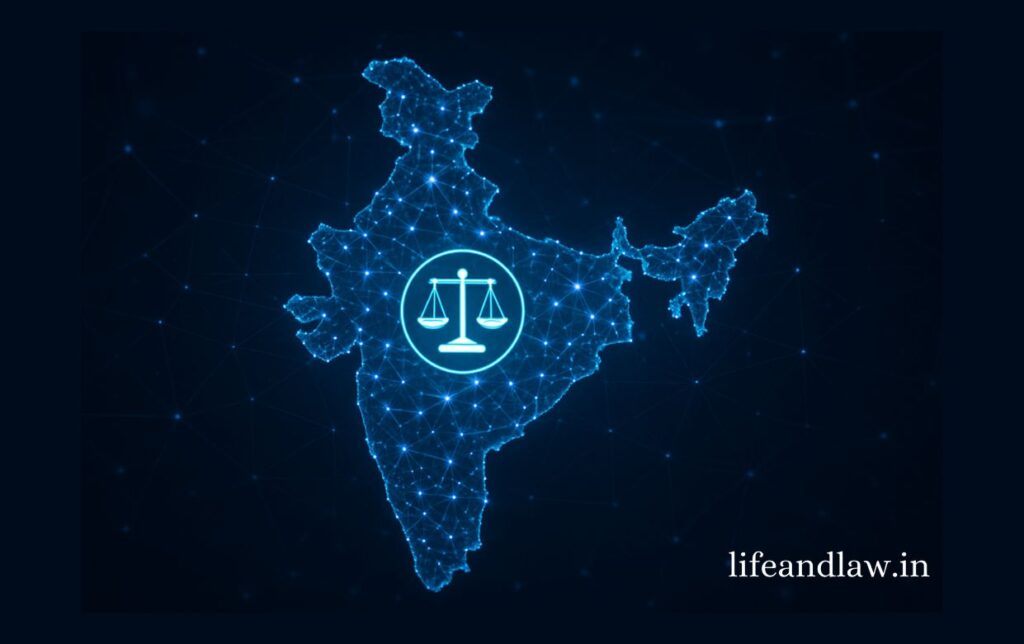Trending

Technology has become an integral aspect of modern life, propelling change in fields such as education, healthcare, agriculture, industry, the economy, and the legal system. Artificial intelligence, blockchain, cyberspace, and digital transactions have made citizens’ lives more efficient, straightforward, and transparent.
With this quick growth, the realm of law is likewise changing. Legal frameworks for cyber law, data protection, e-commerce, and digital governance are critical to ensuring openness, accountability, and security. The aim of this article is to investigate significant technology-related regulations, emerging issues, and possibilities influencing India’s digital future.
National Technology Day marks a significant milestone in India’s scientific development. In 1998, India successfully conducted nuclear tests in Pokhran, Rajasthan, establishing itself as a nuclear-capable nation on a global scale. Dr. A.P.J. Abdul Kalam and Dr. R. Chidambaram led the testing as part of Operation Shakti. Since 1999, the Government of India has designated May 11 as National Technology Day to commemorate this historic achievement.
This day is primarily intended to recognise and encourage the achievements of scientists, engineers, researchers, and inventors. It also intends to use technology to boost development in defence, health, agriculture, education, and industry, as well as to increase the use of indigenous innovation and strengthen the spirit of self-reliance. Furthermore, the day aims to promote scientific thinking among young people and raise knowledge about job options in the field of technology. In essence, National Technology Day celebrates India’s scientific independence, research capacity, and innovation-driven growth.
1.Information Technology Act (IT Act, 2000)
The Information Technology Act of 2000 is the fundamental law that governs digital and cyber activity in India. Its primary goal is to regulate cybercrime, threats, and data theft. The IT Act focusses on cybercrimes such as online fraud, hacking, cyberbullying, and digital defamation. It recognises electronic papers and contracts as legal, allowing digital agreements and electronic signatures to be valid. Furthermore, the Act protects the privacy, security, and rights of internet users.
2.Digital Personal Data Protection Act of 2023 (DPDP Act).
The Digital Personal Data Protection Act of 2023 is a key piece of Indian law aimed at protecting data privacy. It creates tight guidelines for protecting individuals’ personal information, governing how data is gathered, processed, and kept. This law requires firms to seek clear consent before collecting any personal data. It also gives individuals access, correction, and deletion rights over their personal data. The law assures that victims of data breaches can seek justice and accountability.
3.Intellectual Property Laws
India’s intellectual property laws play an important role in promoting technological innovation and research. The Patents Act of 1970 allows inventors to obtain patents for their ideas, providing economic and technical protection. This promotes new technical discoveries. The Copyright Act of 1957 protects software and digital content, giving creators freedom over commercial use of their works. Furthermore, the Trademarks Act of 1999 protects brand names and emblems of technology products or services, thereby enhancing firm identity and competitiveness.
Cybersecurity: Increased cyberattacks and data leaks necessitate greater security methods and infrastructure.
Data Privacy: Growing data collecting jeopardises individual privacy, necessitating stricter enforcement of privacy regulations.
Ethical issues: New technologies, such as AI, create moral concerns about privacy, bias, and abuse of power.
Gaps in the Legal Framework: India lacks comprehensive rules governing emerging technologies like blockchain and cryptocurrencies.
Infrastructure limitations: Inadequate internet connectivity in rural areas restricts the scope of digital transformation.
Skilled Workforce Shortage: A shortage of qualified professionals in technical disciplines impedes industrial expansion.
Social impact: Rapid technology development contributes to digital inequality and has an impact on conventional industries, perhaps lowering employment possibilities.
Emerging Technology: The advancement of AI, machine learning, blockchain, and IoT has created several opportunities for enterprises to improve operations and create novel goods and services.
Digital transformation: Businesses and government organisations are increasingly digitising their services, resulting in new job opportunities in software development, data science, and cloud computing.
Start-ups and Innovation: The burgeoning startup ecosystem in India promotes innovation and technological advancement, creating job opportunities and expanding the market through innovative products and services.
Smart Cities & Infrastructure: Smart City projects and the quest for sophisticated infrastructure have increased the role of technology, creating new opportunities in urban development, transportation, and energy management.
Technology education and skill development: The growing reliance on technology has resulted in increased chances for IT and tech education, with several training programs geared to develop digital skills.
Global Market Access: Technology allows Indian enterprises to develop abroad. Digital integration allows industries to reach foreign markets, enhancing economic growth and global competitiveness.
Technology is critical to both national and international growth. Addressing issues such as cybersecurity, data privacy, and ethical governance necessitates a strong and adaptable legal framework that ensures the safe and responsible use of technology.
As Adv. Abdul Mulla has stated on platforms such as www.asmlegalservices.in and www.lifeandlaw.in, new industries such as smart cities, startups, and digital transformation have enormous promise for inclusive growth in India. The proper application of technology can generate jobs and boost India’s standing as a global innovation leader.
Adv. Abdul Mulla (Mob. No. 937 007 2022) is a seasoned legal professional with over 18 years of experience in advocacy, specializing in diverse areas of law, including Real Estate and Property Law, Matrimonial and Divorce Matters, Litigation and Dispute Resolution, and Will and Succession Planning. read more….
Copyright BlazeThemes. 2025